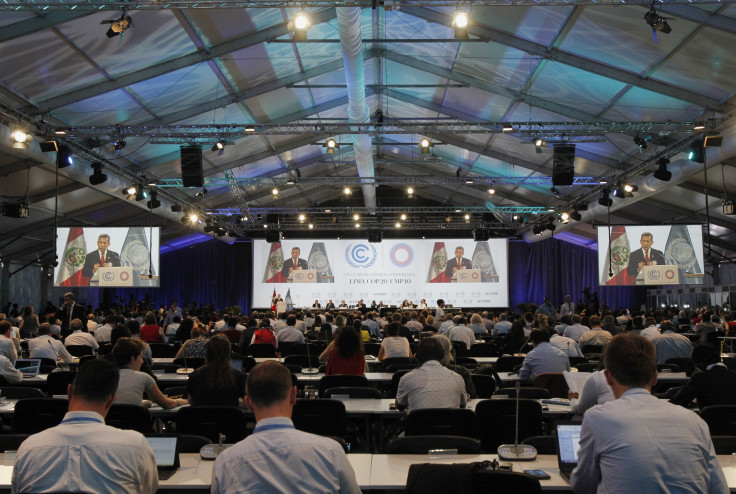No Resolution Yet At UN Climate Change Summit

United Nations talks on a new climate-change agreement continued in Lima, Peru, Saturday, despite a scheduled Friday conclusion to the two-week meeting. The main bone of contention was a disagreement between developed countries and developing countries over which should bear the brunt of cuts to carbon emissions.
Many poor nations want to see their rich counterparts promise to subsidize carbon reductions, which are estimated to cost about $100 billion per year by 2020, Reuters reported. The request has met significant opposition among negotiators representing some of the 196 countries at the Climate Change Conference. A similar dispute divided those at a meeting in October, Bloomberg News said at the time.
The conference to address issues such as global warming, rising sea levels, floods and droughts has yet to yield significant results, and observers are expecting a limited deal that leaves the most controversial issues for a gathering in Paris next year.
Al Jazeera reported Friday night the meeting had not been officially extended, but “had just continued on. ... The British are saying it’s going to finish at four o'clock in the morning. The Chinese say it will be at some point tomorrow night.” It added, “The conference president said there has to be a text on the table at 10:30 tonight.”
Last week, U.N. Secretary General Ban Ki-moon renewed his call to action, warning that time was running out to cut greenhouse-gas emissions to safer levels. “This is not a time for tinkering; it is a time for transformation,” Reuters quoted Ban as saying. “I am deeply concerned that our collective action does not match our common responsibilities.”
Ban said the world still has a chance to limit the effects of global warming. The U.N.’s scientific panel on climate change released a recent report saying Earth can withstand no more than about 1 trillion tons of carbon if the planet is to have a realistic chance of avoiding dangerous levels of warming. More than one-half of that so-called carbon budget has already been reached -- and emissions continue to rise, largely fueled by growth in China and other emerging economies.
“We are shocked that some of our colleagues would want to avoid a process to hold their proposed targets up to the light,” said Tony de Brum, the foreign minister of the Marshall Islands, a Pacific nation of low-lying atolls at risk of being flooded by rising seas, the Miami Herald reported.
© Copyright IBTimes 2024. All rights reserved.






















